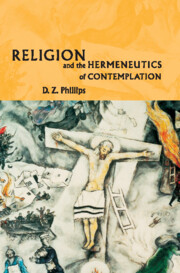Book contents
- Frontmatter
- Contents
- Preface and acknowledgements
- 1 Hermeneutics and the philosophical future of religious studies
- 2 Bernard Williams on the gods and us
- 3 Hume's legacy
- 4 Feuerbach: religion's secret?
- 5 Marx and Engels: religion, alienation and compensation
- 6 Tylor and Frazer: are religious beliefs mistaken hypotheses?
- 7 Marett: primitive reactions
- 8 Freud: the battle for ‘earliest’ things
- 9 Durkheim: religion as a social construct
- 10 Lévy-Bruhl: primitive logic
- 11 Berger: the avoidance of discourse
- 12 Winch: trying to understand
- 13 Understanding: a philosophical vocation
- Index of names
- Index of subjects
4 - Feuerbach: religion's secret?
Published online by Cambridge University Press: 03 December 2009
- Frontmatter
- Contents
- Preface and acknowledgements
- 1 Hermeneutics and the philosophical future of religious studies
- 2 Bernard Williams on the gods and us
- 3 Hume's legacy
- 4 Feuerbach: religion's secret?
- 5 Marx and Engels: religion, alienation and compensation
- 6 Tylor and Frazer: are religious beliefs mistaken hypotheses?
- 7 Marett: primitive reactions
- 8 Freud: the battle for ‘earliest’ things
- 9 Durkheim: religion as a social construct
- 10 Lévy-Bruhl: primitive logic
- 11 Berger: the avoidance of discourse
- 12 Winch: trying to understand
- 13 Understanding: a philosophical vocation
- Index of names
- Index of subjects
Summary
FEUERBACH AND DEMYSTIFICATION
In the course of the last chapter we saw the insuperable difficulties facing anyone who argues that since God's existence cannot be verified directly, it must be inferred from what we see around us. Hume, at his strongest, argues that that inference is logically problematic. I have argued that these logical difficulties are more severe than Hume realised, although this greater challenge is latent in his remarks. In his Natural History it can be said that Hume, turning from the philosophical character of his ‘true religion’, examined concept-formation in religious belief. He concluded that seeing what this amounts to reduces religion to an understandable natural phenomenon; a phenomenon which helps one understand why religion along with philosophical defences of it, leads one to postulate transcendental illusions. Once Hume's philosophical critique is accepted, the inevitable legacy he bequeaths is simply the task of giving increasingly detailed accounts of how these illusions come to be formed and believed.
It is easy to see Ludwig Feuerbach as an inheritor of Hume's legacy. Eugene Kamenka says of him:
He does not confront religion as an external critic, as one who is simply concerned to show that there is no God. This, Feuerbach believed, was work successfully completed by the eighteenth-century Enlightenment. The point now was to understand religion, to show its genesis in something non-supernatural in terms of which it could be explained and understood, thus undermining the supernatural pretensions of religion at the same time as accounting for them. Feuerbach's method, applied and extended by such thinkers as Marx and Freud has become one of the standard ways of dealing with ‘ideologies’ as opposed to theories – we show how they arose and what needs they satisfy or what language they appeal to.
- Type
- Chapter
- Information
- Religion and the Hermeneutics of Contemplation , pp. 87 - 129Publisher: Cambridge University PressPrint publication year: 2001



